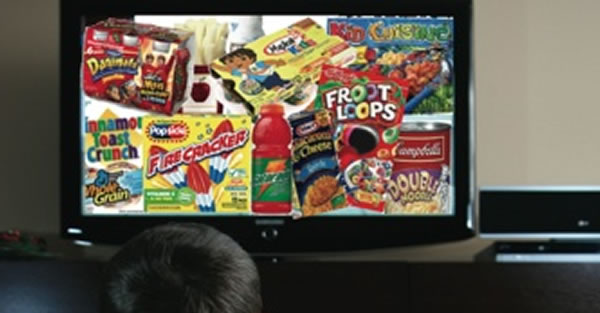One in three Kiwi kids are overweight or obese. They face a life where they are 3-10 times more likely to be obese, and this weight will be harder for them to shift than it is for others. Long term, diabetes, heart disease and an early death beckons.
Junk food advertising aimed at kids plays a part in this epidemic. Anyone who denies this is an idiot or a lobbyist – why would the industry spend money on pester power if it didn’t work? Industry apologists argue is that it is up to parents to police what their kids eat. Fine – let advertisers target parents – they don’t need to target kids directly.
The Government is currently looking at the options for curbing this growing epidemic, but politically they have tied their hands by labeling the most effective ideas as ‘nanny state’. One of their first acts was to backpedal on selling healthy food in schools.
They have also dismissed taxing junk food or even the junkiest of them all – those sugar stacked, nutritionally naked soft drinks. Minister Coleman is wrong when he says tax doesn’t work – not only would it raise cash for preventing or treating the impacts of obesity, it would also reduce consumption.
If these ideas are off the table, banning junk food marketing to kids is the only other change that could have a real impact on our kid’s waistlines. Better education would help, but isn’t enough to solve the problem.
Seven out of ten Kiwis favour stronger restrictions on advertising to kids and an Australian study found it would be one of the most cost-effective ways to reduce child obesity. In fact, it is hard to find anyone that thinks it is a good idea for the junk food industry to target kids – except for the advertisers, and of course the media and politicians they fund.
While society tends to write off obesity as a matter of individual choice, we accept children can’t make informed choices. We don’t let them smoke or drink because it damages their development. So why do we let them be targeted by advertisers pushing addictive substances that could lead to a lifetime of health problems and an early death?
The last Labour-led Government looked at regulating advertising to kids back in 2007. The food industry responded by voluntarily restricting TV advertising of junk food during ‘children’s programming times’ (weekday afternoon and weekend morning TV).
Eight years later our kids are still getting fatter. TV advertisers still target kids – just outside these hours – and they have other, more powerful guns in their junk food marketing armoury. Sugary cereals and yoghurts are plastered with cartoon characters, and junk food adverts surround our schools, particularly in poor neighbourhoods.
The previous focus on TV advertising is now completely out of date – just look at the McDonalds Happy Meal website, which is chokka full of free games to play. But don’t worry, to look after our kids they won’t advertise on after school TV – and if they do their carrot sticks and apple slices will figure prominently. What a joke.
At the very least the voluntary agreement signed in 2008 needs updating for the internet age. Ideally the Government would go further and regulate properly. After all, self-regulation isn’t regulation. It is a cop out.
Two thirds of food advertising is for junk food, with around half of this coming from takeaway outlets. This barrage of adverts has changed perceptions of what constitutes junk food (or as the food industry calls it ‘treat’ food) and how often you should eat it. Junk food companies can afford to advertise so much because their food is cheap and nasty. Their tactic is, as we all know, to get the kids hooked and they will pester their parents into submission.
Half of parents don’t understand how to eat healthily themselves, yet they are expected to fend off a barrage pester power – the bulk of which comes from junk foods. These adverts swamp any government information campaigns about healthy eating. Whose side are the Government on, parents or food companies?
If this Government are serious about reducing child obesity, and refuse to tax junk food, the least they can do is lend parents a hand by banning pester power.

